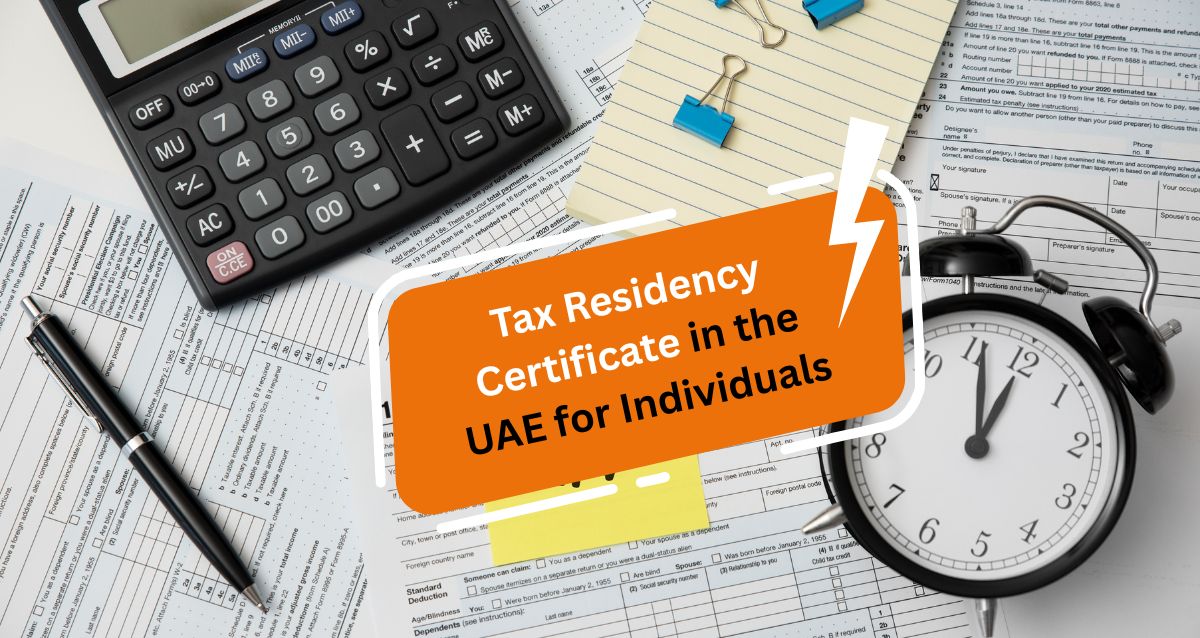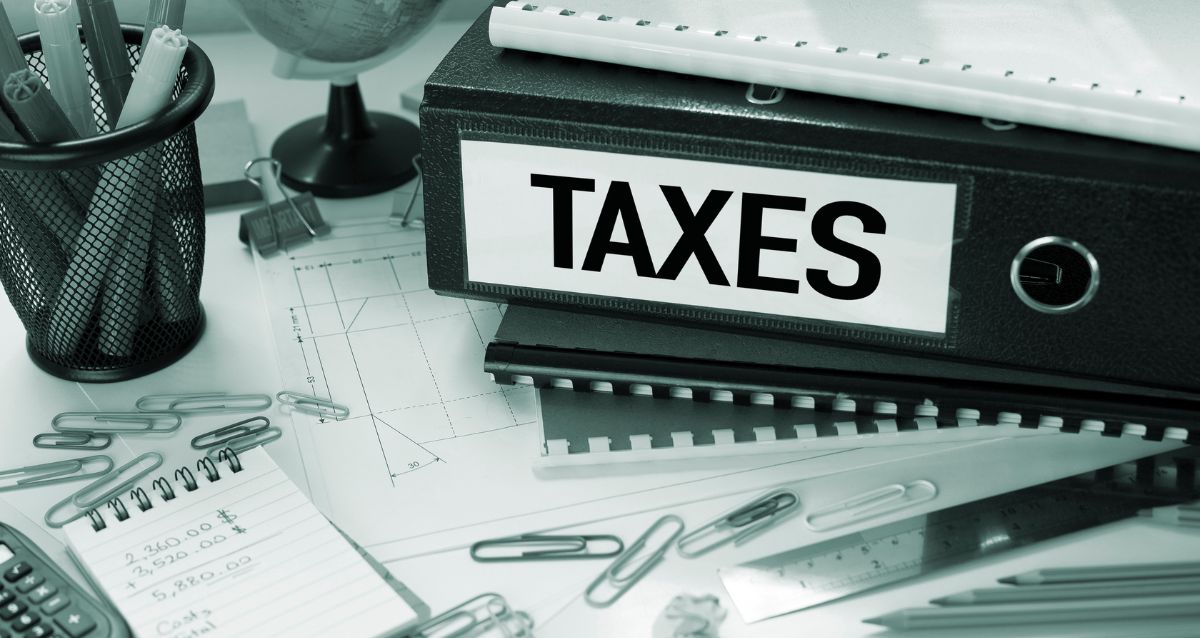Your 2025 Guide to the Tax Residency Certificate in the UAE for Individuals
UAE’s population is reaching new heights, just like its skyscrapers. Around 50 people each day have made Dubai their new home. In fact, between January and June, the city gained over 110,000 people, bringing the total to a record-breaking 3.95 million residents. This swift growth shows the appeal of the UAE, but with it comes the need for people to understand the basics of Dubai's financial system. For every new arrival, one of the most important things is to officially confirm their status as a domestic resident. This blog discusses the in-depth details of obtaining a tax residency certificate in the UAE for individuals. Let’s get started.
What is the Tax Residency Certificate in the UAE?
A Tax Residency Certificate (TRC), also referred to as a Tax Domicile Certificate, is issued by the UAE Federal Tax Authority (FTA). It's a formal document that serves two main functions:
- It allows corporate individuals to benefit from double tax avoidance agreements (DTAA) that the UAE has with other countries, avoiding double taxation on the same income.
- It officially proves an individual to be a tax resident of the UAE & serves as proof for all domestic dealings that they meet the criteria set by UAE law to be considered a resident.
The main reason to get a tax residency certificate for domestic tax purposes is to prove your tax residency status in the UAE. This is vital for all sorts of financial dealings, banking requirements & legal declarations.
Who Can Get a Tax Residency Certificate for Domestic Tax Purposes?
The Federal Tax Authority has set certain rules for individuals who want to apply for a domestic TRC. Any natural person can apply for it. However, the main condition is based on how many days you have physically been in the UAE. There are three ways to qualify:
● 183 days or more: If you have been in the UAE for 183 days or more in a row for over 12 months.
● 90 to 183 days: If your stay is between 90 to 183 days, you are a GCC national or a UAE resident, you must also qualify for one of these:
- You possess a permanent residence in the UAE (like a property you own or rental possession).
- You run a business or have a job with a reputed UAE company.
● Less than 90 days: Even with a shorter stay, you can apply if you fulfil these two:
- You are a permanent resident in the UAE.
- Your personal and financial interests are mainly in the UAE ( like family, business )
Meeting these conditions is the first step to getting your application for a tax residency certificate in Dubai approved.
How to Apply for a Tax Residency Certificate in Dubai: Steps to Follow
Obtaining a tax residency certificate in the UAE is now a lot easier with the UAE's Federal Tax Authority’s (FTA) online portal known as EMARATAX. You can be done with the whole process in just a few quick steps, which include:
Step 1: Head to the EMARATAX website: Go to the FTA website, log in to your EMARATAX account - or sign up for one if you don’t already have it.
Step 2: Find your way to the services section: Once logged in, scroll over to the ‘Other Services’ section and click to open it.
Step 3: Pick your application type: After that, you need to pick which applicant you are (which basically means picking your Tax Registration Number or TRN). If you don’t have a TRN yet, it’s no problem, just choose the ‘No TRN’ preference.
Step 4: Choose the right certificate: Now you need to choose the type of certificate you need. Here, you need to select the "Request for Issuance of Tax Residency Certificate for domestic tax purposes" for individuals.
Step 5: Fill it out & hit send: Now it’s time to fill out the application form with all the correct details. Don’t forget to upload all the necessary documents and pay AED 50 to submit your application.
Step 6: Pay & get your certificate: When the FTA gives their approval to your application, you’ll be asked to submit the final fee for the certificate. Once you’ve done that, you will be able to download your digital tax residency certificate straight from the website.
The Documents You Will Need
Before you get to the application process for your tax domicile certificate in Dubai, make sure to collect all the necessary documents required beforehand. The required documents will entirely depend on how long you have been in the UAE.
|
Eligibility category (days in UAE) |
Mandatory documents |
Supporting documents |
|
183 Days or More |
Passport copy, entry and exit report from ICA |
Emirates ID/residence visa copy (if available) |
|
90 to 183 Days |
Passport copy, entry and exit report from ICA |
Emirates ID/ residence visa copy, proof of permanent residence (title deed, EJARI, utility Bill), proof of income or salary slips |
|
Less than 90 Days |
Passport copy, entry and exit report from ICA |
Emirates ID/residence visa copy, proof of permanent residence (title deed, EJARI, utility bill), proof of financial and personal interests in the UAE |
Application Costs & The Life of the Certificate
Lastly, but most importantly, to apply for the tax domicile certificate in the UAE, you will be required to pay two fees, which include:
- Application fee: You will have to pay a non-refundable fee of AED 50, which is just the cost of submitting your application
- Certificate fee: If you are not currently signed up for tax, then it will cost you AED 1,000 to get the certificate
The certificate will be valid for one year, starting on the day you choose in your application. Something else to keep in mind is that the certificate is proof of residency for the past or current period, not for any future dates.
Wrapping Up
Briefly put, getting your tax residency certificate in the UAE for individuals is about making your financial life easier. It serves as clear, official proof of your status. Helping you handle banking and other important matters smoothly and without any issues.
How can Flyingcolour Tax and Consultant help?
Navigating the application for a UAE Tax Residency Certificate (TRC) involves strict requirements regarding physical presence, documentation, and the FTA's online EmaraTax portal. Flyingcolour Tax and Consultant simplifies this entire process for individuals.
We offer end-to-end support, including eligibility assessment based on your days of stay, meticulous preparation and verification of required documents (like the ICA entry/exit report and attested tenancy contracts), and seamless submission through the FTA portal. Our expertise ensures your application meets all domestic tax criteria, minimizing the risk of rejection and securing your official UAE tax resident status efficiently. We are your dedicated partner for compliance and clarity in your financial declarations.
Frequently Asked Questions (FAQ) about the UAE Tax Residency Certificate:
Q1. What is a tax residency certificate for individuals in the UAE?
An official document issued by the UAE's Federal Tax Authority (FTA) that certifies an individual's tax residency status in the country. It is primarily used to claim benefits under Double Taxation Avoidance Agreements (DTAAs) signed by the UAE.
Q2. Who is eligible for a tax residency certificate?
An individual is generally eligible if they have a valid UAE residence visa and have physically resided in the UAE for at least 183 days within the requested financial year. Certain criteria may allow for a shorter stay (e.g., 90 days) if other conditions related to permanent residence or business activity are met.
Q3. What is tax residency self-certification for individuals?
Tax residency self-certification is a declaration typically required by banks and financial institutions (in the UAE or abroad) to confirm the account holder's tax residence under international reporting standards (like CRS or FATCA). It is a form you sign yourself, distinct from the official TRC document issued by the FTA.
Q4. What is a tax residency certificate in the UAE?
A Tax Residency Certificate (TRC), also known as a Tax Domicile Certificate (TDC), is an official document from the FTA serving as legal proof of tax residence, allowing the holder to benefit from international tax treaties (DTAAs) and preventing double taxation on the same income.
Q5. How to get an individual tax residency certificate in UAE?
The certificate is obtained by applying online through the Federal Tax Authority (FTA) EmaraTax portal. You must register an account, submit the required documents (passport, Emirates ID, visa, 6-month bank statement, residency proof, and entry/exit report), and pay the application fees.
Q6. How to get tax residency in the UAE?
Tax residency is established by fulfilling the legal requirements, primarily having a valid UAE residence visa and meeting the physical presence test (usually 183 days per year, or 90+ days with other financial/personal ties) as defined by UAE tax law and DTAAs.
Q7. How can I download my tax residency certificate in the UAE?
The certified soft copy of the Tax Residency Certificate (TRC) can be downloaded directly from your account on the FTA EmaraTax portal once your application is reviewed, approved, and the final processing fees are paid.
Q8. Can a UAE freezone company get a tax residency certificate?
Yes, a UAE Free Zone company is generally eligible to apply for a TRC, provided it has been in existence for at least one year, maintains adequate economic substance (physical office, audited financial statements), and is registered with the relevant Free Zone Authority. Offshore companies are usually excluded.
To learn more about Tax Residency Certificate in the UAE for Individuals: The Smart Resident Guide, book a free consultation with one of the Flyingcolour team advisors.
Disclaimer: The information provided in this blog is based on our understanding of current tax laws and regulations. It is intended for general informational purposes only and does not constitute professional tax advice, consultation, or representation. The author and publisher are not responsible for any errors or omissions, or for any actions taken based on the information contained in this blog.




